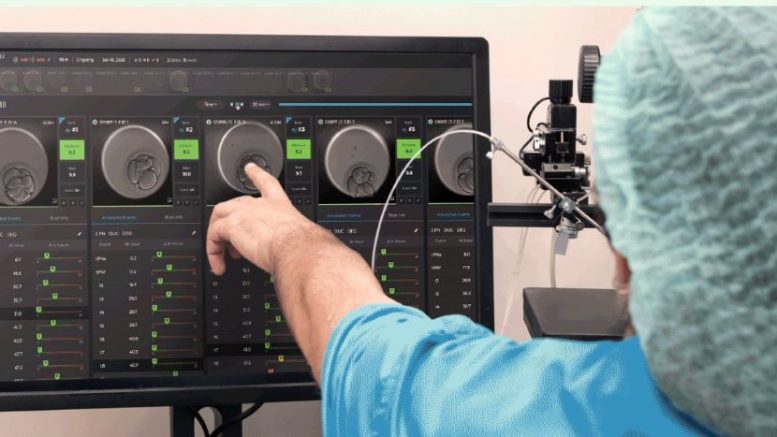One Year Following CE MDR Clearance, Fairtility has emerged as the AI Decision Support Platform of Choice in European Fertility Practice
Fairtility, the transparent AI innovator powering in vitro fertilization (IVF) for improved outcomes, is expanding its geographic footprint across Europe. One year since receiving CE MDR clearance for CHLOE EQ, Fairtility has established a strong presence in countries, including the United Kingdom, Spain, Turkey, Greece, and Norway, in its mission to transform the IVF landscape.
“Clinics across Europe have embraced CHLOE EQ, and they are seeing the disruptive capabilities of the platform, both in terms of embryo selection and providing patients the most advanced and transparent IVF experience available,” said Eran Eshed, CEO and Co-founder of Fairtility. “These clinics are charting the path forward as AI progresses to become part of the standard of care across the IVF journey.”
Fairtility has implemented its transparent AI tool in 10 clinics, including:
- IVF London, UK
- Harley Street Fertility Clinic, UK
- The Centre for Reproductive and Genetic Health (CRGH), UK, part of Future Life
- MEMORIAL IVF, Turkey
- Next Fertility Murcia at Tahe Medical Center, part of Next Clinics, Spain
- Tambre Fertility Clinic Madrid, Spain
- The Institute of Life – IASO, the leading Assisted Reproduction (IVF) Unit, Greece
- CRA Barcelona, Spain
- Klinikk Hausken, part of Medicover, Norway
- Instituto Bernabeu, Spain
With 1 in 6 people experiencing infertility in their reproductive years, the IVF market is growing. Fertility care providers must expand capacity by seeking opportunities to create workflow efficiencies both within and beyond the embryology lab. CHLOE EQ represents a breakthrough in the IVF field, enabling clinics to reduce time spent on manual embryo annotation by an average of 33 percent per cycle. This has resulted in a 30-50 percent increase in IVF cycle capacity in clinics.
“Implementing AI technologies entering the IVF space challenges traditional norms and drives innovation forward for the entire industry,” said Suzanne Cawood, Director of Embryology, CRGH UK. “AI tools like CHLOE EQ are necessary for improving the efficiency of IVF processes and increasing transparency. They are also the answer to IVF professional shortages and embryologist burnout resulting from the volume of administration associated with a single IVF cycle. Fairtility’s AI makes IVF more efficient and accessible to the growing population of people seeking fertility treatment.”
To thrive in the digital age, clinics must embrace a fully digital IVF journey that is streamlined and transparent for all stakeholders. Fairtility understands this imperative and is supporting clinics in achieving digital transformation for the IVF journey. CHLOE EQ integrates with leading IVF EMR providers, enabling data to flow freely from lab-to-fertility specialist-to-patient, paving the path for more open communication on treatment plans and progress.
“We selected CHLOE EQ because of its ability to provide quantifiable biological data on embryo development, quality and viability. This transparency and interpretability set it apart from other AI-based decision support tools available,” said Shabana Sayed, Senior Embryologist and IVF Lab Manager at Klinikk Hausken, part of Medicover. “Our embryologists see this system as a companion that helps augment and standardize decision making. It speaks to them in a language they understand –human biology.”
CHLOE EQ is the only commercial AI decision support platform able to quantify biomarkers throughout embryo development, automatically analyzing established morphological and morphokinetic features, which are traditionally captured in a time-consuming and subjective manner. Through translation of computational information to biologically relevant interpretation made ready for clinical decision making, CHLOE is the first and only transparent AI system able to automate analysis of the full spectrum of biological events related to embryo development.
“Together with our visionary partner clinics, we are reshaping the fertility landscape, addressing the urgent need for improved outcomes, and providing patients with the transparency and control they desire,” said Eshed.

